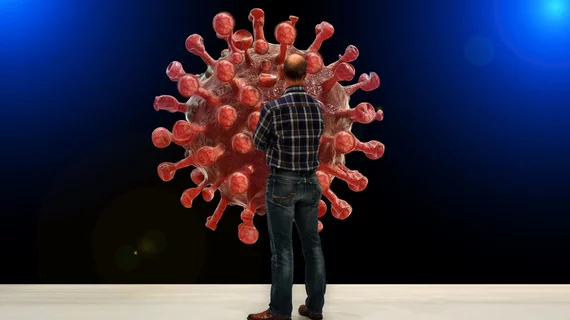‘Good news’: Mild COVID-19 doesn’t appear linked to long-term heart damage
People who have suffered mild COVID-19 infection are “very unlikely” to experience long-term heart damage, according to the results of a new prospective study.
Recent investigations have shown the coronavirus can inflict lingering harm to the cardiovascular system, particularly those hospitalized with severe cases. But there’s been less focus on the many individuals who experienced little-to-no symptoms, University College London researchers explained Saturday in JACC: Cardiovascular Imaging.
Analyzing front-line healthcare workers six months after their mild infection, cardiac MRI scans showed no difference in key heart muscles and inflammation compared to healthy individuals. And two important markers of damage also proved similar between the groups, blood samples showed.
It’s a positive result many patients have likely been hoping for, the authors explained in the study.
"These findings one year on from the start of the pandemic are welcome reassurance to the hundreds of thousands of people who have experienced COVID-19 with mild or no symptoms,” Sonya Babu-Narayan, associate medical director at the British Heart Foundation, which helped fund the study, and a consultant cardiologist on the project, said in a statement.
For their case-controlled study, the authors enrolled 149 healthcare workers with mild infection from a consortium of patients spanning three London-based hospitals.
Six months after their diagnoses, 74 workers underwent heart MRI scans that were compared to imaging from 75 healthy matched controls. There was no difference in the size or amount of muscle in the left ventricle, or its pumping capabilities, between both groups. Heart inflammation and scarring also remained the same, along with aorta elasticity. The latter is key for easy blood flow out of the precious organ.
Each of the 149 participants also received weekly blood draws, saliva and nasal swabs for 16 weeks. Blood samples showed zero differences in two key markers of heart muscle damage—troponin and NT-proBNP—six months post-infection.
Given their findings, the team suggests only performing heart screening exams in those with severe COVID-19, high-risk groups, or patients with ongoing symptoms.
“There's still a lot more work to be done, but for now it seems the good news is that mild COVID-19 illness does not appear to be linked to lasting heart damage,” Narayan said over the weekend.

